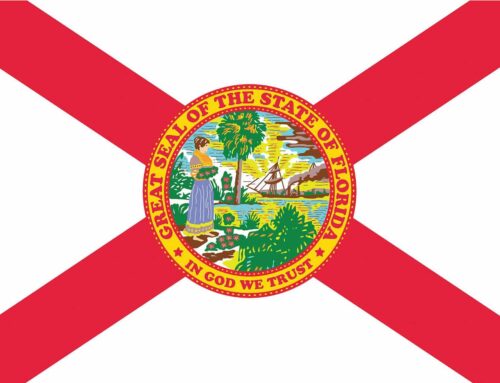In the car insurance context, “PIP” stands for personal injury protection. PIP insurance covers you and your passengers in the event you or they are injured in a car accident.
Generally, PIP insurance covers:
- Medical bills arising from a car accident
- Lost wages due to the injuries
- Rehab and physical therapy costs
- Personal assistance expenses for those disabled due to a car accident, such as child care, house cleaning service, or home health aids
- Funeral expenses for deceased
- Survivor benefits for the family of deceased individuals.
What does PIP Not Cover?
PIP only covers injuries to passengers in your vehicle. Not to passengers in another driver’s vehicle.
One of the advantages of PIP insurance is that it is designed to pay out quickly. No matter who is at fault. Insurance companies know that car accident victims need cash now to pay medical bills, replace lost income, keep health insurance in place avoid eviction or foreclosure, and take care of basic living expenses.
You can rely on the other drivers’ liability insurance. But that will only pay out weeks or months later. You may have to sue to recover damages – which could delay the process even more.
Meanwhile, you – and anyone in your vehicle who was injured with you – have bills to pay.
PIP insurance also protects relationships between family, friends, and loved ones. Here’s how:
If you have PIP insurance, your passengers won’t be put into the position of having to sue you – and potentially force you into bankruptcy – to get their medical bills paid and get compensated for lost income.
If you’re ever in an accident with injuries to you or your passengers, you’ll be glad you had PIP insurance in place.
Is PIP Insurance Required?
PIP is required in some states, optional in others, and not available in others.
Currently, PIP insurance is required as part of no-fault insurance in the following states:
- Florida
- Hawaii
- Kansas
- Kentucky
- Massachusetts
- Michigan
- Minnesota
- New Jersey
- New York
- North Dakota
- Pennsylvania
- Utah
Three states, Kentucky, New Jersey, and Pennsylvania, offer policyholders a choice of taking a no-fault policy, or retaining some ability to sue for damages.
PIP insurance is optional in Arkansas, Connecticut, Texas, Washington, and the District of Columbia.
PIP insurance is not available in other states.
PIP Insurance vs. Health Insurance
If you have health insurance, it will cover you for injuries sustained in a car accident – and for just about anything else. Subject to your annual deductible, and a co-insurance requirement, which is commonly 20%, up to an annual out of pocket limit.
PIP insurance, on the other hand, only pays for medical bills arising as a direct result of the car accident in a covered vehicle. But unlike your health insurance, it will pay expenses for other people in your car with you who get injured in a car accident.
If you have a good health insurance policy you plan to use, and you don’t carry passengers other than your own family covered under your health plan, it might make sense to decline PIP where it’s an option. Especially if you have a low deductible.
But remember: If you do this, health insurance won’t pay for lost wages or long-term care for either of you. PIP coverage generally will.
PIP insurance should not be considered a replacement for health insurance. But if you don’t carry health insurance for whatever reason, you definitely should consider PIP insurance if it’s available in your state.
PIP Insurance vs. Disability Insurance
PIP will help with lost wages arising directly from an accident. But disability insurance helps with injuries arising from almost anything. Generally, disability insurance will replace up to about 60% or 65% of your pre-disability income, subject to the limits of the policy.
However, if you have disability insurance, whether it’s your own policy or part of an employer’s group plan, it will only pay benefits to you. Not for anyone else injured in your car.
If you rely on your job for income to live on, and if you can qualify, you should carry some disability insurance.
PIP Insurance vs. Bodily Injury Liability Insurance
PIP covers your own medical bills, as well as those injured who were in your covered vehicle with you at the time. Bodily injury liability insurance covers you against injuries you might cause to others, if you’re found at fault for an accident. It’s part of your liability insurance, and it’s usually required.
PIP is normally found in no-fault states.
PIP Insurance vs. Medical Payments Insurance
PIP and Medical Payments insurance (or “med-pay,”) in common parlance, have a lot of common elements. Med-pay only pays medical bills arising as a direct result of the accident, however. Unlike PIP, Med-pay will not cover lost wages or housekeeping/home health/personal assistance services for people disabled due to an accident.
Medical payments insurance is optional, and not available in all states.
PIP insurance is preferable to Medical Payments. But it’s usually a bit more expensive.
Mostly because it’s worth it.
Don’t “stack” PIP and Medical payments insurance together. You only need one or the other. And if you have a choice, get PIP, rather than med-pay.
PIP Insurance and Workers Comp
PIP doesn’t cover you if you’re driving for your employer. If you are driving your car doing work for your employer, your employer’s workers compensation insurance should pick up the slack.
However, worker’s compensation doctors tend to be the worst of the worst. And you have little or no freedom to choose your own doctor, in many states. You have to go with the doctor the workers compensation system assigns you. And workers comp doctors are carefully selected for their own compliance with the worker’s compensation system.
Still, it is what it is.
Review Your Policy
Did you just move to a new state? You might have to add PIP coverage. Or possibly drop PIP coverage if you move to a non-n0-fault state.
In any case, it’s a good idea to shop around for the best pricing every year or two.
Different carriers price PIP insurance very differently. And those prices can change a lot based on your age, zip code, credit score, make and model of your vehicle, and other factors.
Use an independent insurance agency like Select Insurance Group, who can take your application and “shop” it to multiple different carriers.
Many insurance agents, including lots of them in strip mall offices and those who have been selling auto, home, and fire insurance to families for years, can only write business for a single company.
And that company knows their agents’ customers don’t shop around. So they rarely offer the best rates. Particularly for higher-risk drivers.
Use an Independent Agency, Not a Captive One
As an independent agency, we routinely get our customers quotes from several different carriers, all competing to earn your business. Our carriers know they’re competing through the independent sales channel. So they have more of an incentive to offer their best price, and you’re more likely to receive the best possible value.
Not to rely on misplaced brand loyalty to a company that thinks of you as a policy number, anyway.
Stop paying for overpriced car insurance from uncompetitive companies! Call us today, and get a set of fresh, competing quotes, with the PIP insurance, liability coverage, and comprehensive coverage you really need!
Call us now at (855) 438-7353 to speak to an agent! Or fill out our brief online form and we’ll get right back to you.
You could be saving hundreds of dollars per year. Or fix some big gaps in your insurance protection. Or both!
See you on the road!
Steve “Mr. Insurance” Ludwig
CEO, Select Insurance Group
Don’t Miss These Blog Posts.
Six Cheap DUI Insurance Mistakes High-Risk Drivers Make
How Much Liability Insurance Do I Need?
Take a Safe Driver Course: Save Money on Car Insurance.






